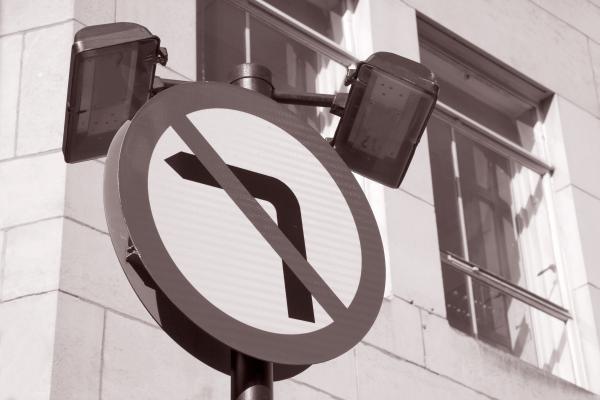“All truth passes through three stages. First, it is ridiculed. Second, it is violently opposed. Third, it is accepted as being self-evident.” —Arthur Schopenhauer
I’m visiting Las Vegas this weekend, one of several stops on my postChristian book tour. I’m staying with my aunt and uncle, who are also in ministry, and who I don’t get to spend time with nearly often enough.
My aunt JoLynn was reading aloud a story about the shipping company UPS and how their trucks don’t make left turns. Of course my first reaction was, “well, that’s stupid.” It seems entirely counterintuitive to send trucks on a roundabout circuit when they could much more easily cut the route short by hanging a left. You need to go right, turn right. Need to go left, turn left for crying out loud. It’s just common sense, right?
Maybe not.
UPS has a proprietary navigation system that helps drivers plot out all of their stops in a day and the most efficient way to get there. And based on their research, left turns result in more wasted time and more accidents than they’re worth. Drivers end up stuck at long lights when they could otherwise be turning through a red light making a right turn and making another drop-off. Plus, without left turns, trucks don’t have to cross oncoming traffic, which means fewer collisions.
They save time. They save money. All it took was thinking differently about how the delivery routers should be configured without all of those high risk, time-consuming left turns.
It got me thinking about how many other things are like this in my life: habits that, because I’ve simply done them forever the same way, or because society says it’s the way we do things, are actually obsolete or even dysfunctional at their core.
Like why do I keep sitting down to write, when I know that a standing desk helps me burn more calories, increase muscle tone and reduce blood clots?
Or why do businesses largely require all employees to come and go at basically the same time, causing increased pollution, time wasted in traffic, and lots of missed appointments, when common sense suggests that staggered work schedules could greatly reduce all of these?
And why in the hell do hot dogs come in packs of eight, while the buns come in packs of twelve???
I could go on, but you get the idea.
We could apply the same line of questioning to church:
Why do we say we want young adults and families to come to church, then have meetings and events at times when kids are in bed, or we don’t offer child care as an option?
Or why do we preach about being humble servants of the Gospel, and then serve deacons communion first, before they serve the rest of the congregation?
Or why do we pour good money after bad into outdated, oversized institutional systems that were built in a time, and for a society, that no longer wants or needs the things it offers?
I think it’s time for a period of mindful discernment. We need to stretch ourselves to consider our own behaviors more objectively, more critically. For everything we do, especially under the auspices of Church, we need to stop and ask ourselves: why do we do that? What would happen if we stopped, or if we did it differently? And why am I so blind to the inefficiencies, right in front of me? Who do I need to welcome in to help me lovingly recognize my own stuck-ness?
It’s time for church to stop making left turns, simply because we can, and we’ve “always” made them in the past. So what are your left turns? How can you imagine breaking out of your own cycles of inefficiency and dysfunction?
Christian Piatt (christianpiatt.com) is the creator and editor of the Banned Questions book series and the author of PregMANcy, a memoir on faith, family, and parenting. His latest book is postChristian: What's Left? Can We Fix It? Do We Care? (Jericho Books).
Image: Kevin George / Shutterstock.com
Got something to say about what you're reading? We value your feedback!
